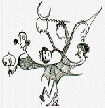 |
ANTIQUE BOXES
at the Sign of the Hygra
2 Middleton Road
London E8 4BL
Tel: 00 44 (0)20 7254 7074
email: boxes@hygra.com |
Antique Boxes in English Society
1760 -1900
by ANTIGONE
Tea Caddies and Tea
|
|
| Mahogany Tea Caddy with Conch Shell inlay Circa 1790. |
A very good example of a mahogany veneered tea
caddy with exceptionally robust shell inlay. A typical design
of the last decade of the 18th century.
8.75" wide 4.75" deep 5.5" tall
Circa 1790
This
caddy is included in our forthcoming book. www.hygra.com/cover
|
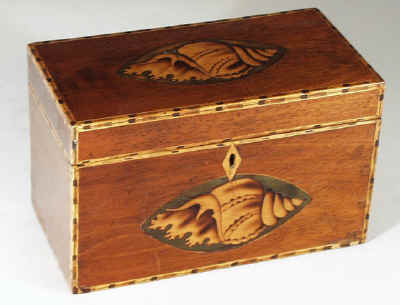 |
|
|
|
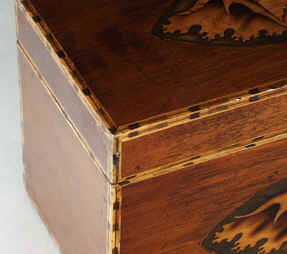 |
The box is framed with fine geometric inlay and
lines of stringing in contrasting woods.
|
|
|
The inlaid shell is shaded with the hot sand
method which darkens the light wood without the need of stain.
This gives a more natural and subtle result.
The detailed cutting of the pattern makes this an excellent example
of such marquetry.
|
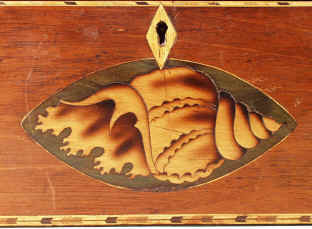 |
|
|
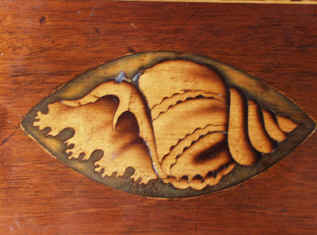 |
The shell on the top with slight variations, consistent
with the type of work which necessitated individual finishing
on each piece. The shells are placed on a green background.
The greening of the wood was often the result of a fungal attack,
or of chemical alteration, or both. This explains the uneven natural
looking color.
|
|
|
There are two lids covering the two sections for holding two
types of tea. The lids are a later, possibly 19th century addition.
Originally the caddy was divided into three sections.
|
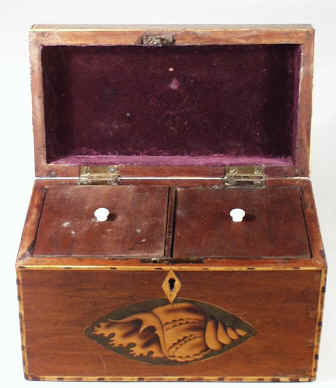 |
|
|
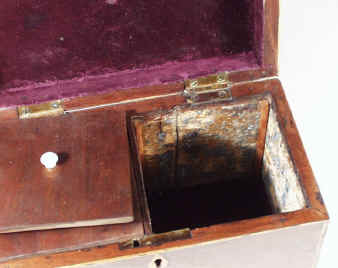 |
The inside retains significant traces of the original lining.
|
|
|
|
|
|
There are a few old repairs on the veneer (see also front picture)
which have been sympathetically done but which are visible. This
is well reflected in the price.
|
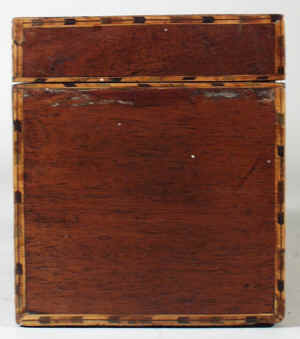 |
|
|







